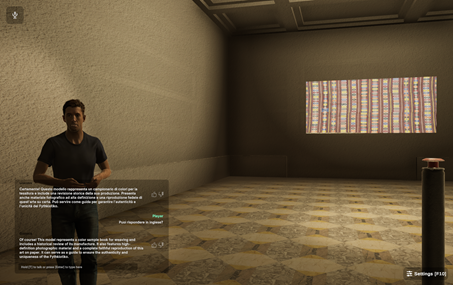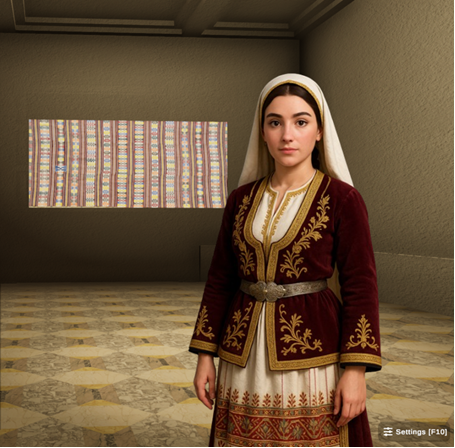This work explores the intersection of folk art, museums, and education in the 20th century, focusing on the concept of art as experience and highlighting the role of museums as active, inclusive learning environments. A collaborative effort between the University of Salerno and the University of Nicosia has led to the development of virtual museum environments using virtual reality (VR) to foster deeper engagement with cultural heritage. These initiatives aim to make museums more accessible and interactive, with future potential in integrating artificial intelligence-driven NPCs and VR strategies to provide personalized visitor experiences at the Nicosia Folk Art Museum.
As part of an educational project for the Cyprus Folk Art Museum, an AI-powered Non-Playable Character (NPC) was created through the collaboration between the University of Salerno and Convai technology. This NPC acts as a dynamic virtual tutor within a game environment developed in Unity3D. The game features detailed representations of fythkiotika—a traditional form of Cypriot loom embroidery—with zoom-in functionality enabled by selection buttons. The game is compatible with the Meta Quest VR headset, enhancing the edugame experience and transforming it into a rich, personalized learning journey that merges cultural heritage with contemporary educational approaches inspired by Dewey’s pedagogical activism and constructivist theories in museum education..
Drawing on this robust foundation, the NPC offers insightful guidance on the historical evolution, technical characteristics, and cultural significance of fythkiotika textiles. It also helps visitors understand how this distinctive textile tradition, characterized by its unique motifs, colors, and weaving techniques, stands apart from other embroidery forms on the island and remains a vibrant symbol of Cypriot folk heritage today.



The actual NPC multilingual tutor

A possible Design for a next NPC

